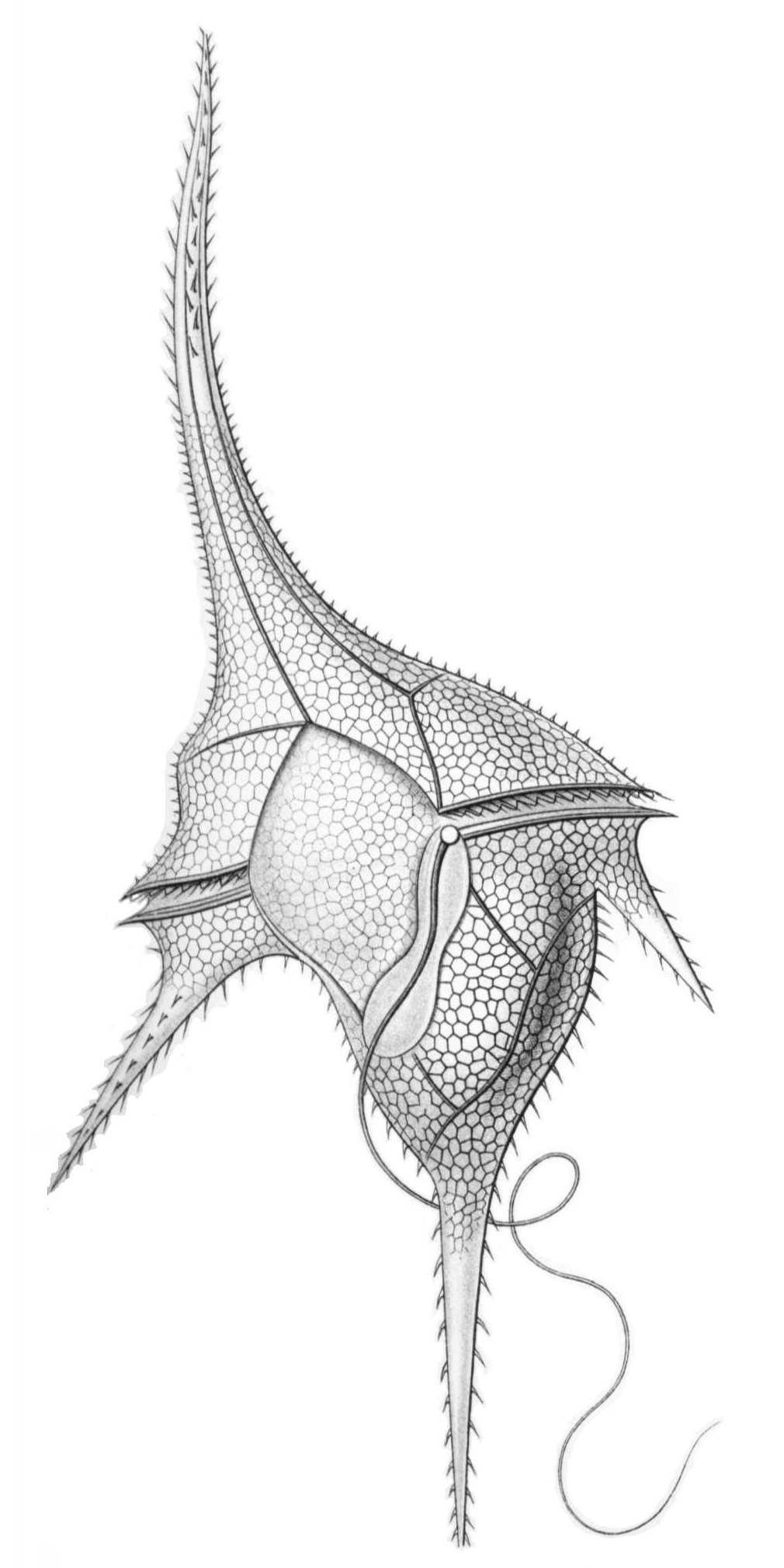|
Ceratium Hirundinella
The genus ''Ceratium'' is restricted to a small number (about 7) of freshwater dinoflagellate species. Previously the genus contained also a large number of marine dinoflagellate species. However, these marine species have now been assigned to a new genus called ''Tripos''. ''Ceratium'' dinoflagellates are characterized by their armored plates, two flagella, and horns. They are found worldwide and are of concern due to their blooms. Taxonomy The genus was originally published in 1793 by Shrank, F. von Paula. The taxonomy of C''eratium'' varies among several sources. One source states the taxonomy as: Kingdom Chromista, Phylum Miozoa, Class Dinophyceae, Order Gonyaulacales, and Family Ceratiaceae. Another source lists the taxonomy as Kingdom Protozoa, Phylum Dinoflagellata, Class Dinophyceae, Order Gonyaulacales, and Family Ceratiaceae. The taxonomic information listed on the right includes Kingdom Chromalveolate. Thus, sources disagree on the higher levels of classification, ... [...More Info...] [...Related Items...] OR: [Wikipedia] [Google] [Baidu] |
Eukaryote
Eukaryotes () are organisms whose cells have a nucleus. All animals, plants, fungi, and many unicellular organisms, are Eukaryotes. They belong to the group of organisms Eukaryota or Eukarya, which is one of the three domains of life. Bacteria and Archaea (both prokaryotes) make up the other two domains. The eukaryotes are usually now regarded as having emerged in the Archaea or as a sister of the Asgard archaea. This implies that there are only two domains of life, Bacteria and Archaea, with eukaryotes incorporated among archaea. Eukaryotes represent a small minority of the number of organisms, but, due to their generally much larger size, their collective global biomass is estimated to be about equal to that of prokaryotes. Eukaryotes emerged approximately 2.3–1.8 billion years ago, during the Proterozoic eon, likely as flagellated phagotrophs. Their name comes from the Greek εὖ (''eu'', "well" or "good") and κάρυον (''karyon'', "nut" or "kernel"). E ... [...More Info...] [...Related Items...] OR: [Wikipedia] [Google] [Baidu] |
